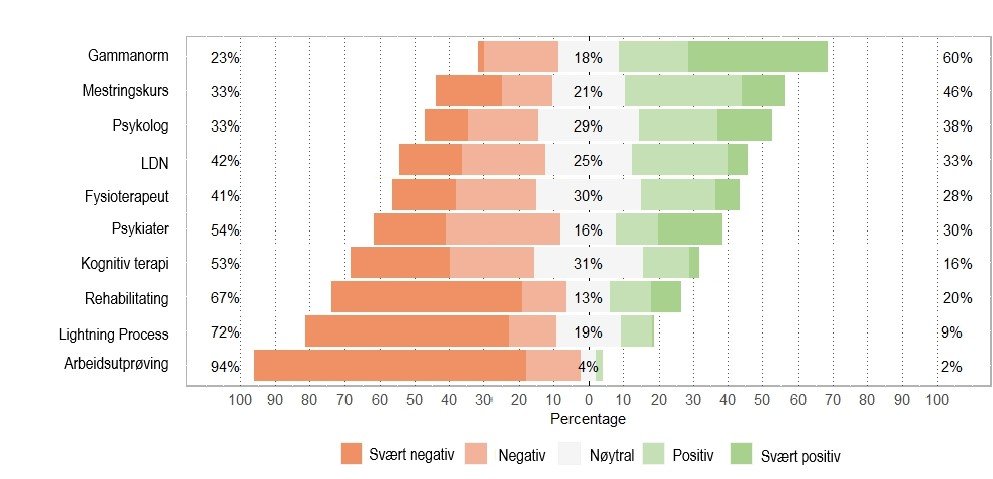Full title: Do diagnostic criteria for ME matter to patient experience with services and interventions? Key results from an online RDS survey targeting fatigue patients in Norway
Abstract:
Public health and welfare systems request documentation on approaches to diagnose, treat, and manage myalgic encephalomyelitis and assess disability-benefit conditions. Our objective is to document ME patients’ experiences with services/interventions and assess differences between those meeting different diagnostic criteria, importantly the impact of post-exertional malaise. We surveyed 660 fatigue patients in Norway using respondent-driven sampling and applied validated DePaul University algorithms to estimate Canadian and Fukuda criteria proxies. Patients on average perceived most interventions as having low-to-negative health effects. Responses differed significantly between sub-groups for some key interventions. The PEM score was strongly associated with the experience of most interventions. Better designed and targeted interventions are needed to prevent harm to the patient group. The PEM score appears to be a strong determinant and adequate tool for assessing patient tolerance for certain interventions. There is no known treatment for ME, and “do-no-harm” should be a guiding principle in all practice.
Full paper:
https://journals.sagepub.com/doi/10.1177/13591053231169191
Abstract:
Public health and welfare systems request documentation on approaches to diagnose, treat, and manage myalgic encephalomyelitis and assess disability-benefit conditions. Our objective is to document ME patients’ experiences with services/interventions and assess differences between those meeting different diagnostic criteria, importantly the impact of post-exertional malaise. We surveyed 660 fatigue patients in Norway using respondent-driven sampling and applied validated DePaul University algorithms to estimate Canadian and Fukuda criteria proxies. Patients on average perceived most interventions as having low-to-negative health effects. Responses differed significantly between sub-groups for some key interventions. The PEM score was strongly associated with the experience of most interventions. Better designed and targeted interventions are needed to prevent harm to the patient group. The PEM score appears to be a strong determinant and adequate tool for assessing patient tolerance for certain interventions. There is no known treatment for ME, and “do-no-harm” should be a guiding principle in all practice.
Full paper:
https://journals.sagepub.com/doi/10.1177/13591053231169191

